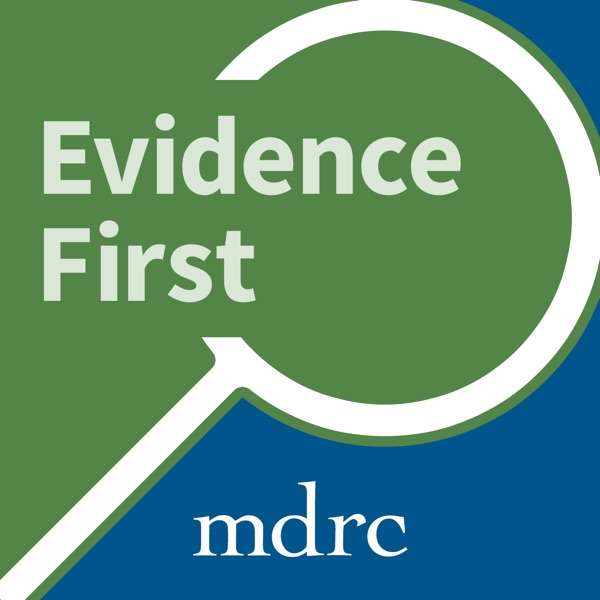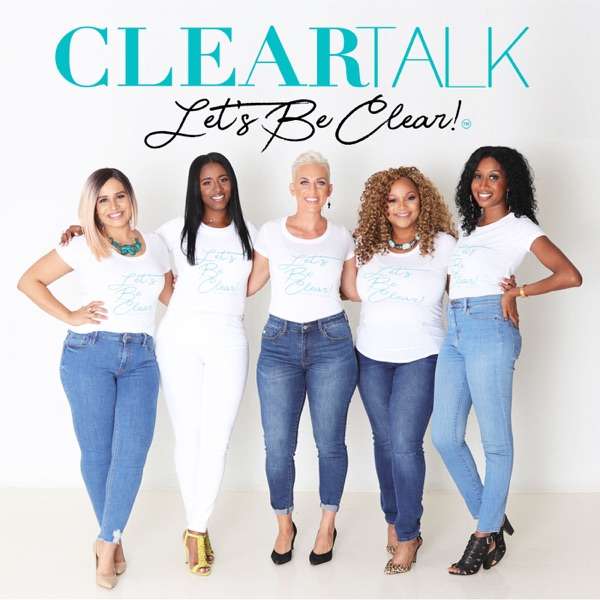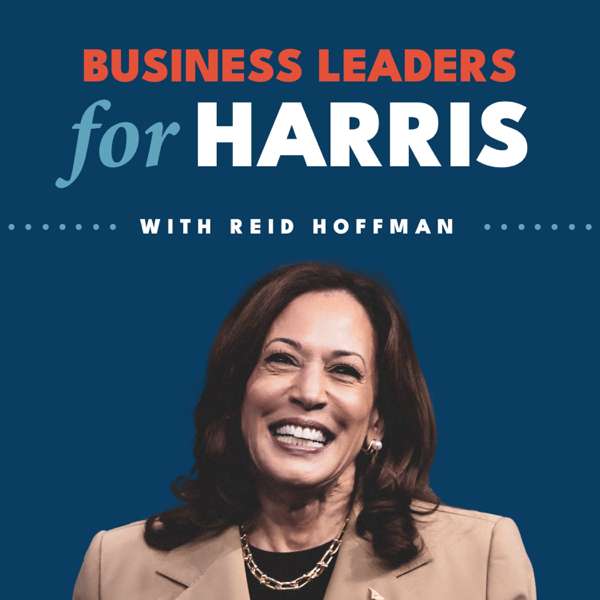Welcome to NAR's Center for REALTOR® Development podcast. I'm Monica Neubauer, your host. How many of you would like some more good tools to help more buyers buy homes? I say more, because we talked about this in our other episode with Skyler Lemons, and we are here with Kameron Kang from Washington, D.C. Welcome, Kameron!
I met Kameron, and he has some great news, so I said, I need you to share this! Kameron has spent the last decade working across the housing world, from construction to real estate sales to community planning. He started his career as a real estate agent and broker in Washington, D.C., where he built a team focused on helping first-time buyers, especially those using purchase assistance programs.
[1:05] We are here with Kameron Kang. Welcome Kameron!
[1:26] Kameron started his career as a real estate agent and broker in Washington, D.C., where he built a team helping first-time buyers using purchase assistance programs. Over a couple of years, he led more than 500 homebuyer seminars. His work has centered on making home ownership accessible.
[1:55] That has taken Kameron into everything from advising developers to consulting on housing policy and serving on real estate boards. He also runs a small hospitality business for short-term rentals.
[2:11] Kameron started in the Army and Army National Guard, serving in the Infantry and Psychological Operations. He's mission-driven, collaborative, and focused on solving problems.
[2:28] Kameron studied at Syracuse University and Valley Forge Military College and is originally from the Scranton area of Pennsylvania.
[2:35] Today, Kameron is focused on connecting buyers and professionals with the funding tools and programs that are out there but often underutilized. He is happy to have been working in the industry in many different ways.
[3:17] Kameron says that the foundation of his real estate journey was with the downpayment assistance program of the Veterans Administration loans. He'll talk about that in today's episode.
[3:32] Washington, D.C. has been a challenging market for many years. It's a complex market with highly educated buyers and expensive housing, relative to income. Kameron says we can make it work with creative solutions.
[4:15] Kameron calls them community home investment programs (CHIPs). These are investments by the community in home ownership. That's going to be one of the solutions to getting us out of the housing crisis that we are in.
[5:00] Kameron recalls the marketplace from 2015 to 2020. It was more balanced, and people were interested in homebuying, but there were barriers. We didn't have the media saying homes were completely unaffordable. People wanted to buy but didn't know how.
[5:37] From 2020 to 2022, the media said, "Now's the time to buy a house." Kameron had 20 to 50 people in seminars, excited to buy, but having no idea how.
[5:48] Now, it has pulled back because the narrative is that homes are completely unaffordable. People are generally afraid. That creates a lot of opportunity for REALTORS® to stand on soapboxes and yell out, "We have programs!"
[6:17] Monica agrees, it's up to the agents to go out into the community and push back against that narrative. Agents will have to get into real conversations and hold seminars.
[6:48] That's where we'll be able to show our value as professionals in communities. Kameron calls the theme Boots on the Ground, REALTOR® Now, to start acting in our communities.
[7:06] Seminars are one of the first places to start educating in communities, and get people inspired and believing again that homeownership is in their future.
[7:37] Kameron once watched a Navy recruiting video of a woman who had been able to buy a house right away, utilizing the Veterans Administration Loan. Kameron had had housing instability, so that video message was impressed into his brain. He was inspired and wanted to do the same.
[8:14] Kameron was obsessed with using his VA Loan ASAP to buy his first place. Within months of becoming eligible to use it, Kameron bought a home, building a strong foundation.
[8.28] When Kameron was in Washington, D.C., working for a real estate team, one of the agents was doing seminars on local community home investment programs, or CHIPs. They were popular. Other agents saw that they helped grow business.
[8:55] As the Business Development Coordinator, Kameron was tasked with making the seminars more consistent and better.
[9:07] When Kameron launched his sales career, he loved seminars, so he did 500 of them over two years, sometimes three a day. Whether it's for one person or 50, it is an opportunity to share information and inspire people in a no-pressure sales situation. He couldn't fail.
[10:05] He was concerned with people getting value from the seminar. Kameron thinks they did.
[10:20] Monica explains that Kameron's goal was 500 seminars, with marketing to get people there. He trusted that if he brought value, the result would be money.
[10:33] Monica says if you do seminars, and find out after a certain number that you end up with so many clients, that helps you refine your goal. Your goal can be seminars or talking to people.
[11:00] Kameron says the seminars started as two hours, with all the details of the homebuying process. People didn't retain it. Kameron refined them to 30 to 40 minutes of content.
[11:37] The seminar was to give an overview and focus on key elements, such as what's possible in financing, and give people knowledge about what to expect along the way.
[11:54] In seminars, Kameron would say, "My goal today is to give you an idea of what the whole mountain looks like. I'm going to give you the information and the next steps you need to take."
[12:09] "I'm not gonna tell you that there's a branch halfway up the mountain that you're gonna forget about. I'm telling you what you need to know today that will get you through the next few steps." Kameron says it allowed them to stay at a high energy level and not be bogged down.
[12:40] By the structure of the seminar, Kameron made the process seem unintimidating, and it showed how easy it is to work with him. This is enjoyable if it's handled in this bite-sized format.
[12:59] Monica adds, there's the mountain, but the first step is financing. And that's with everybody, whether they have a lot of money and you need to teach them how to get their cash ready, or they need the CHIPs.
[13:12] The next step, Kameron told everyone, is a lender strategy call, so that they can figure out where they stand financially, relative to buying a house. And once they have those details, transition to an agent strategy call. Those were the two action steps.
[13:35] The agent strategy call starts with a number. You can take that number, see tangible properties, and get an idea of what you could afford. You might go back and forth between lender and agent until you're in a position where what you qualify for fits the needs of your family.
[13:58] It gave them a very tight framework. It gave them no commitments, because it's scary to commit early. But it worked well. People appreciated it. Kameron gave them multiple lenders.
[14:15] Kameron told them the three options that he'd recommend if they're looking at certain programs. That takes having strong relationships with loan officers. When it came to talking to an agent, Kameron put himself on the follow-up email.
[14:32] Kameron would say, You can talk to me. I'm available, but if you have somebody else, you can talk to them. Kameron gave them options. You're doing this for a reason, so make sure you put your name down as an option to talk to.
[14:51] Sometimes people asked if they could work with him. It was incredible because they did not feel pressured. People said, We just want to make sure we can reach out to you. And Kameron said, yes, he would love to work with them on this process.
[15:24] Kameron sees agents struggling with showing their value and what they bring to the table. After these seminars, people would email months later, We've been doing the lender strategy call. Would you be willing to work with us? We have everything done.
[15:54] Kameron would say, OK, yes. It was one of the best experiences he had, compared to how agents are taught to bombard people. Kameron thinks the REALTOR® way is seminars.
[16:38] Kameron tells how people find down payment assistance programs. Sometimes it's word-of-mouth from friends. They see someone buy a house or they see somebody on social media. Be specific in your social media to make people aware of these programs.
[16:56] In D.C., the housing agency offers DC Open Doors, HPAP, and other options. DC is a cerebral market, so a lot of people search for grants on their own. They're looking for options.
[17:09] In some other marketplaces, people might not even know programs exist or are available to them. In the U.S., there are over 1,500 programs that Kameron would qualify as CHIPs.
[17:29] There are so many of these programs all across the country. Massachusetts leads the pack. Maryland has quite a few. They are everywhere. They are impactful.
[17:43] Kameron has a website, homebuyerwallet.com, with a national database of programs to make the search user-friendly. Put your town in, and search for down payment assistance, closing cost assistance, or home-buying programs. Do different term searches and see what pops up.
[18:11] Kameron developed homebuyerwallet.com because the government websites are pretty tough sometimes. Kameron calls these community home investment programs because they are investments by the community. They're not handouts.
[18:41] This is helping a community member who is employed, is maybe a Millennial who did everything they were supposed to do, and who doesn't have a cash down payment.
[19:01] A homebuyer should not feel bad about help from the community. An agent shouldn't feel bad about helping their community members who are on that fringe.
[19:23] It is incredibly important to have owned stable housing communities. It is an investment from the community in homeownership. Homeownership in communities is important. It matters.
[19:47] If you're willing to invest half a billion dollars into a football field or the home of a sports team, you should be willing to invest in the community members. It's really important to have communities filled with active, engaged homeowners who love where they live.
[20:09] Communities will see the return on investment every time if they invest in these programs.
[20:20] Monica says people have different opinions about the policy when it's being talked about. Once something becomes available, by all means, please take advantage of it.
[20:51] That money has now been made available; whether you thought it was a good idea or not is irrelevant. Let's use it. Let's make sure that the people who qualify for the funds are using them.
[21:18] Kameron says, in terms of us providing value as REALTORS® in our communities, boots on the ground, we can transform these programs and have more funding invested in them.
[21:31] Imagine being a REALTOR® in your community when you're sitting across from buyers and they say, Why are you worth this? Why are you worth this commission or this fee?
[21:42] And you say, Well, have you been to a recent community meeting? No? I have. And I advocated for this $20,000 of funding that you are going to use to buy your house. And I'm one of the people who advocated for this time and time again.
[21:58] So imagine the value that if you're sitting there as a REALTOR®, stressed about what value you bring. People find houses online. People bring Kameron houses all the time. You can go to an open house. But how do you transform your value proposition?
[22:13] You advocate for your community, and you shape programs that fit that community. And that's something that you'll see from 1,500 programs. There's a vast range of what these programs can offer.
[22:27] In DC, one of the biggest programs in terms of offerings is HPAP. And that's the Home Purchase Assistance Program. The maximum assistance for that program is $202,000 for a down payment. And then it's $4,000 for closing costs. So that's a $206,000 program.
[22:46] The condo market in DC is quite slow. The way that program is handled is it's a zero-interest, 45-year loan on that $200,000. So when you talk about affordability, it's not just what the house sells for; it's about how the financing is structured.
[23:03] And that's one of the big areas where, if you spread out those costs over that period, you can recharge a whole market segment.
[23:11] Kameron explains how this applies to housing for people leaving college or trade school. Instead of getting sucked into the luxury rental cycle, where, yes, you might get three months free, but it's not free. You're trapped in that rental cycle because it costs money to move.
[23:42] Kameron suggests an alternative. Before you leave college, start looking at these programs. You can get a program like HPAP or DC Open Doors to help you get a small condo.
[24:00] If we want to, we can fund these programs and start to spur a whole generation of people trading up. It starts with advocacy to make sure more of this funding is available and more of these programs work for people. We have to let people know that this option works.
[24:28] Monica asks about a second mortgage kind of program, which can be a little bit complicated, but because they're complicated doesn't mean they're a bad deal. Sometimes real estate agents don't even understand them.
[24:42] Monica asks, How do we partner with the lenders who do understand this and can, first of all, train us? How are you connecting with lenders to advance your lender partnerships to improve these programs for your buyers?
[25:06] Kameron says, Teamwork makes the dream work. So you don't need to know every factor or detail. The home-buying process is the same. We're just adding a few additional elements.
[25:18] As a REALTOR®, remember, it is the same general process. You identify a house. Some of the order is different, and some timelines are extended. As the REALTOR®, you take the lead.
[25:35] Kameron succeeded because he took the lead in all of these instances. He said, I'm going to have ownership of this. I'm going to know what needs to happen and when it needs to happen. It's simply a checklist. You just need a checklist.
[25:58] We've got to get this document. At this time, we have to contact these people. The key part is communicating so all stakeholders are engaged. Stakeholders, meaning you, your buyers, the listing agent, the lender, and the sellers, need to understand the value of this.
[26:15] Do you want top dollar for your house? Then we need to have this program work. So you're gonna have to wait an extra 30 days, and that's okay, because some of the timelines are extended.
[26:26] Kameron talks about loan officers. With a government-based program, there might be multiple loan officers to work with. So, find the officers who want to do this type of business.
[26:40] Certain loan officers in Kameron's market are very engaged. They'll go to the town hall and advocate with you. Work with those people. Those are the ones that you want.
[26:50] If it's bank-specific, where they might be offering through the Community Reinvestment Act, it's a requirement for some of these credit unions to invest in the community, and they'll do a $15,000 grant. And when they have programs like that, then you need to work with that lender.
[27:07] There are typically multiple lenders in that institution. So, find the one that is really into the program, and they can process it. The lenders have a lot more capacity. You just need to find the diamond in the rough when it comes to that.
[27:25] Don't look for someone to be the hero. You, the REALTOR®, are the hero of this process. This is where your value is and how you're going to command your commission.
[27:36] It is a great way to make sure that you earn the money that allows you to be a community advocate so that these people can live their lives the way they want. Use a checklist. Kameron is working on ways to help create systems to enable having a checklist and the right information.
[27:59] Monica talks about finding the lenders through the grant, because not every lender does every CHIP. Sometimes you need to start with a program and see who the approved lenders are, and get to know who the banks are in your area.
[28:13] Monica had an email once from a bank that is committed to helping people move forward in home ownership. They had a special program. Monica went in and met their lenders.
[28:27] You get on email lists. When you're connected, you will start to find out about programs. Go to vendor fairs, talk to lenders, and ask, What's your unique program? They'll tell you.
[28:42] Kameron notes that it is a lot of work. He goes back to why he decided to build Homebuyerwallet.com. He had a client who came to him and said, Hey, Kam, this company, George Mason Mortgage, has this $15,000 program. And Kameron hadn't heard of it.
[29:00] Kameron said, Certainly let me examine this because there are some gimmicks out there. Some programs aren't real programs, in his opinion. He looked into it. The program was awesome. It was $15,000 at a reduced interest rate.
[29:14] Kameron spends significant time on this issue, but he hadn't heard of the program. You still might miss some, but you go to where the flagship programs are in your area. And you have to go look at different lenders or institutions.
[29:37] They're bad at marketing, sometimes. Nobody knew about that George Mason program until everybody knew about it. It was a missed opportunity. Homebuyerwallet.com is fixing that.
[29:51] Monica adds, You create a win-win because the lenders want people that they can help as well. So that goes back to the partnership. She says, If you've got the REALTORS®, you've got the lenders working on it, then the third leg is that advocacy.
[30:05] Monica puts a plug in for our members to go join their advocacy committee at the Association of REALTORS® in their area. She makes another point that there are city, county, state, and federal programs. You need to advocate and be aware at all levels, not just one.
[30:28] Kameron attended legislative meetings in Washington, D.C., and the rooms in the Housing Opportunities Committee meeting were packed. The room in the Housing Committee meeting was packed.
[30:44] Kameron says we're seeing turnouts from REALTORS® all around the country. It's the cream of the crop that is willing to come to these, especially legislative meetings.
[30:59] Kameron recaps the programs. Within CHIPs, think down payment assistance, closing cost assistance, tax incentives, such as reduced or tax rebates through the mortgage credit certificate, interest rate buy-downs, shared equity programs, funding for new builds, and ADUs.
[31:17] There are service-based benefits for first responders, educators, veterans, public service workers, and medical professionals. These can touch every single level of your community.
[31:27] If you're in an area like Scranton, Pennsylvania, and you need more doctors. The city can create a municipal program where they'll give doctors $200,000, $400,000 for coming to the area.
[31:41] You need more firefighters? Create a grant program for firefighters to buy in these communities. You can shape your community as a REALTOR® and make it something special.
[31:56] Within the REALTOR® Association Policy Committee, your local committees, you have those options as well, where you can find other like-minded agents that you can work with, so you don't have to do it alone.
[32:10] When Monica invites people to be on the podcast, she's not always sure what they're going to bring. This is another podcast episode that has turned into something bigger than Monica anticipated.
[32:24] I love what you brought, Kameron! Pair this episode up with Skylar's, and you're going to get an amazing bucketful of opportunity, just a plethora of ideas. So, what is your final tip to share with agents who might want to start improving their business opportunities?
[32:46] "Action steps. Number one, start doing a weekly seminar. Treat it like an open house. Get in the business of being consistent, though, because you can't depend on other sources marketing it for you. You will get referrals and word of mouth if you treat it as a knowledge share."
[33:06] "So we had over time from 2015, 2016 to 2019, 2020, we had the amount of referrals that we started to get in those, from friends or people saying, hey, you gotta come to Kam's or Lance's, or whoever was doing the seminar, you gotta come to it."
[33:24] "And it was amazing. Be consistent so that people know, on Wednesday nights, to come to the seminar. And then from there, pick something that I call the honey, that brings in the bees."
[33:39] "So that is a $15,000 grant. That is one program. That's the flagship thing that you're talking about, the idea that gets them excited, right?"
[33:49] "And you do need that to draw people in because just a first-time homebuyer seminar, that's a little flat to be honest, but $20,000 local grants for housing, that is going to move the needle and get people excited."
[34:02] "So post it on Eventbrite, on your Facebook, on your Instagram, and be consistent. That's two things. Consistent seminar, one hour, refine it. You can reach out to me on social media at Kameron Kang, or Kam Kang on Instagram."
[34:17] "And then Homebuyerwallet.com as well, if you want to check that out. But Kameron Kang, you can reach out to me. I'll respond. I'll give you my homebuyer seminar slides."
[34:32] "I'm not afraid of sharing this information and getting you set up to host great seminars that provide a ton of value. Start, be consistent, and then find some honey to draw in the bees."
[34:47] Monica adds, What's the need in your area, and what is satisfying it? Kameron, thank you so much. We're gonna put your contact information in the show notes so they can find it there. And I just appreciate you giving us your time and long-earned wisdom. Thank you so much!
[35:07] I'm just beyond words here with what Kameron and Skylar have brought. These are programs that are out there and available. And I think this is gonna help turn the tide a little bit for a lot of people.
[35:17] I hope you all will add this to your business. This is a great way to help home buyers find financing for their home purchase. And that helps everyone. Just like you said, the community helping people get into housing helps everyone.
[35:29] So go back, listen to the other episode with Skylar, as well. And to my listeners, thank you for taking the time to come and learn more about your industry and the tools that are out there to help you help people.
[35:40] There are also so many great classes at Learning. A realtor can help you work with buyers, and understand the financial side as well, so that when you talk to lenders, you have more information and you are more educated in those conversations, too.
[35:54] So, check it out. Some great offerings there to help you in this challenging market. Thanks again, Kameron. And I'm Monica Neubauer for the Center for REALTOR® Development with these great new tools. Go out there and sell some more houses!
Tweetables:
"To be able to say I have a decade of experience cracks me up a little bit because I think that's always the hurdle that many people have to pass. It's great to have that experience set and to have been working in this industry in so many different ways." — Kameron Kang
"Seminars are one of the first places that you can go to start educating and sharing knowledge in communities, and get people inspired and get them believing again that homeownership is in their futures." — Kameron Kang
"Imagine again, … when you're sitting across from buyers, and they say, 'So, why are you worth this commission or this fee?' and you say, 'Oh. Well, have you been to a recent community meeting? No? I have and I advocated for this $20K of funding that you are going to use to buy your house.'" — Kameron Kang
"People find houses online. People bring me houses all the time. You can go to an open house. But how do you transform your value proposition? You advocate for your community and you shape programs that fit that community." — Kameron Kang
"When you talk about affordability, it's not just what the house sells for; it's about how the financing is structured. And that's one of the big areas where you spread out those costs over that period. You can recharge a whole market segment." — Kameron Kang
"Within CHIPs, think down payment assistance, closing cost assistance, tax incentives, so reduced or tax rebates through the mortgage credit certificate, interest rate buy downs, shared equity programs, funding for new builds, and ADUs." — Kameron Kang
"If you're in an area and you need more doctors, the city can create a municipal grant where they'll give doctors $200,000, $400,000 for coming to the area. You need more firefighters? Create a program, a grant for firefighters to buy in these communities." — Kameron Kang
Guest Links:
Kameron Kang, Community and Housing Advocate
KameronKang.com
@KameronKang on Instagram
Homebuyerwallet.com
Additional Links:
Crdpodcast@nar.realtor
Crdpodcast.REALTOR
Learning.REALTOR — for NAR Online Education
Training4RE.com — List of Classroom Courses from NAR and its affiliates
CRD.REALTOR — List of all courses offered
Host Information:
Monica Neubauer
Speaker/Podcaster/REALTOR®
Monica@MonicaNeubauer.com
MonicaNeubauer.com
FranklinTNBlog.com
Monica's Facebook Page: Facebook.com/Monica.Neubauer
Instagram: Instagram.com/MonicaNeubauerSpeaks
Guest Bio
Kameron Kang is a dedicated community housing advocate and the founder of Homebuyerwallet.com, a platform focused on making homeownership more affordable and increasing the homeownership rate in America. By connecting people with community home investment programs from across the country, Kameron is working to make the dream of homeownership a reality for more Americans.
Kameron's career spans from construction sites to boardrooms, giving him a deep and well-rounded understanding of the housing market. He began as a real estate sales agent and broker, building a high-performance sales team in Washington, D.C., that focused on helping first-time homebuyers, particularly those using purchase assistance programs. Over two years, Kam conducted over 500 seminars on the homebuying process, providing valuable insights and guidance.
In addition to his work in real estate, Kameron has played a significant role in government relations, working closely with local communities to provide input on development decisions and housing finance options. He also operates a "small but mighty" hospitality company focused on short-term rentals and travel planning. His diverse experience extends to consulting for real estate developers, serving as an expert witness in legal disputes, and participating on multiple real estate boards and advisory committees. These roles have allowed him to see the full picture—from the policies that shape housing to the personal stories of those striving for a home. This unique blend of experiences equips him to create meaningful solutions that directly address the needs of individuals and communities.
Kameron attributes much of his career success and progress to the foundation laid during his time serving in the Army and Army National Guard as an infantry and psychological operations officer. He is a graduate of Syracuse University and Valley Forge Military College and was born in Scranton, PA. He currently resides in Washington, D.C.
Through his work, Kameron remains committed to providing practical solutions that meet the specific needs of individuals and communities. Whether you're a first-time homebuyer, a local business owner, or a community leader, Kameron's deep expertise offers valuable insights and actionable strategies to help you achieve your goals and build stronger, more connected communities.
Instagram.com/kameronkang
Kameronkang.com

 Our TOPPODCAST Picks
Our TOPPODCAST Picks  Stay Connected
Stay Connected







